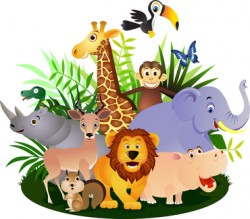Turn a Passion for the Great Outdoors Into an EcoTourism Career
by Jessica Grospitch
Jessica is dedicated to sustainability and loves to share her eco-friendly initiatives.
The flora and fauna of Australia have a uniqueness that separates them from every other taxonomy of the entire world. Some 80 percent of all plants and animals living in the Land Down Under cannot be found in any other part of the planet, making ecotourism in Australia a viable industry that attracts millions from near and far each year. When you have a passion for conservation and keeping endangered animals from becoming harmed by human presences, how can you turn your interests into a lifelong career? Here are some starting pointers:
Begin as a Volunteer
Just as you can become a CEO of a major corporation by first interning on the ground floor, so too do you get valuable experience and contacts by volunteering for an environmental or animal care organization on the path to an ecotourism career. Volunteers have an advantage over interns in that they can quickly progress to a career path, and are under no scrutiny from Fair Work for their services, as Abc.net.au points out. Volunteer with a zoo, a conservation effort, or a scientific survey and you may get to head out into the wild and experience nature close-up. You can hone skills valuable in ecotourism, like explaining concepts and helping to lead others, while you’re volunteering. WildlifeTourism.org.au has an extensive list of resources for anyone interested in wildlife and eco-tourism jobs, including volunteer opportunities, internships for students or full-time positions.
Educate Yourself
The Australian ecosystem has a great deal of nuances and subtleties that defy easy categorization. For example, the saltwater crocodile lives on the northern coast of the entire continent, but can survive as far as 100 kilometers inland away from the ocean and primary feeding grounds, according to AustralianFauna.com. Any person interested in a career involving animals, conservation, and ecotourism should have a strong scientific background in biology, anatomy, food chains and climate. Students thinking about career paths can plan ahead by looking at accreditation options for animal studies. Penn Foster is one resource that has information about how to earn a license to become a vet tech associate. Another great resource to have is the Wildlife Tourism Handbook e-book for anyone interested in the business, available on Amazon. In veterinary medicine, it’s important to be able to quickly find work upon graduation. Once you have a degree in hand, you can work with animals ranging from 15-foot crocs to pint-sized pets.
Manage People, Manage Ecosystems
Sometimes the best way to find a job working with animals lies in job skills working with humans. After all, every scientist that plunges into the rainforest needs a project manager in order to find funding, plan for the expedition, and help communicate the findings. Working on people skills lets you choose a career path in managing everything from wildlife trusts to tourist excursions, the latter of which can help you to lead any of the six million tourists who visit Australia annually, as the Sydney Morning Herald points out. Whether you’d prefer to work with a small team to find the last known members of a species or you’d rather introduce visitors to cuddly koalas, a career with animals is never less than thrilling. Brush up on leadership skills like public speaking, motivation, planning, and conflict resolution in order to position yourself into a career where you can be calling the shots.


Hello,
Using the Wildlife Tourism Victoria website I’m struggling to find where I can submit my resume for consideration for any upcoming positions. Can you help me?
My e-mail is: monica_986@hotmail.com.
Thanks.